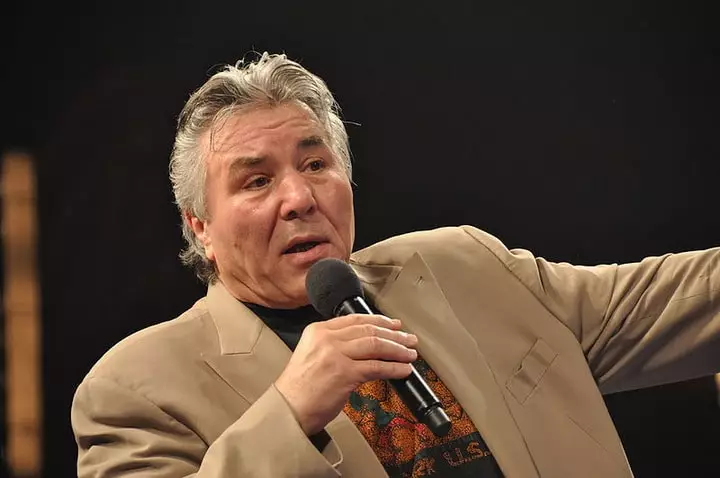In the annals of heavyweight boxing, certain names resonate through history like undeniable echoes of prowess and strength. While legends like Joe Frazier and George Foreman tend to steal the spotlight for their ferocious punching power and championship accolades, there exists a less heralded figure whose raw talent and impact deserve recognition: Mel Turnbow. Known primarily as a sparring partner for some of the sport’s giants, Turnbow’s story is woven into the larger tapestry of boxing, revealing insights into a fighter who, despite a modest record, left an indelible mark on those who dared to face him.
Canadian heavyweight George Chuvalo, revered for his legendary durability and an iron chin that was never broken, provides a unique perspective on Turnbow’s capabilities. Engaged in an eye-opening interview before succumbing to dementia, the 87-year-old heavyweight champion recounted the hardest hitters he faced throughout his illustrious career. Amidst the giants—Frazier’s menacing left hook and Foreman’s bone-jarring punches—Chuvalo included Mel Turnbow, surprising many boxing aficionados who may have overlooked this fine fighter.
The mention of Turnbow among these titans highlights an aspect of boxing that often gets overshadowed: the disparity between recognized records and the reality of an athlete’s skill set. Chuvalo’s acknowledgment of Turnbow as one of the hardest punchers he encountered, despite his lack of knockout victories, calls into question established paradigms surrounding what it means to be a “power puncher.”
At first glance, Mel Turnbow’s professional record may appear inconspicuous—9 wins against 13 losses with just two knockouts. However, these numbers fail to encapsulate the ferocity and skill Turnbow demonstrated during his career. He has often been described as “too passive” or lacking the so-called killer instinct. Yet, the anecdote about him flooring Cleveland Williams—one of the sport’s deadliest punchers—offers a glimpse into the potential greatness that lay dormant within him.
The narrative surrounding Turnbow reveals a dichotomy; while he was seen as a fighter who often refrained from seizing opportunities, those who fought against him knew he could shake the very core of their boxing egos. George Chuvalo’s experience elucidated this; he recalled a moment when Turnbow connected with a solid right hand, a poignant reminder that Turnbow’s prowess often brewed beneath the surface, eluding mainstream recognition.
Sparring partners often occupy a unique liminal space in the boxing world—a blend of support, competitive spirit, and skilled technicians. Turnbow’s commitment to this role allowed him to share rings with the likes of Muhammad Ali and Floyd Patterson, facilitating an environment of mutual growth and challenge. While it may be easy for record keepers to diminish Turnbow’s journey to little more than a series of numbers, the respect he commanded among elite fighters reveals a complexity that invites further exploration.
Reportedly, Ali recognized Turnbow’s abilities by keeping him consistently in his camp during the peak of his career. The regularity with which elite fighters sought Turnbow as a sparring partner indicates an unquantifiable level of talent—a testament to his contextual greatness that is often overlooked in traditional records.
A Legacy that Endures
Though Mel Turnbow’s journey in the boxing world came to an end with his passing in 2013, his legacy lives on, particularly through the voices of fighters like George Chuvalo. In sporting discussions, Turnbow may not always receive the acknowledgment he deserves, but his unique experience showcases the intricate layers that form the narrative of boxing history.
As boxing evolves, it is essential to remember that not all fighters achieve legendary status based solely on their win-loss records. Sometimes, it is the fighters who toil in obscurity that leave lasting impressions on the champions of their era. The enduring memory of Mel Turnbow serves as a reminder that every punch thrown in the ring possesses a story—some merely waiting to be told.

